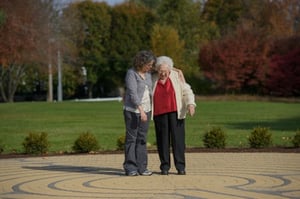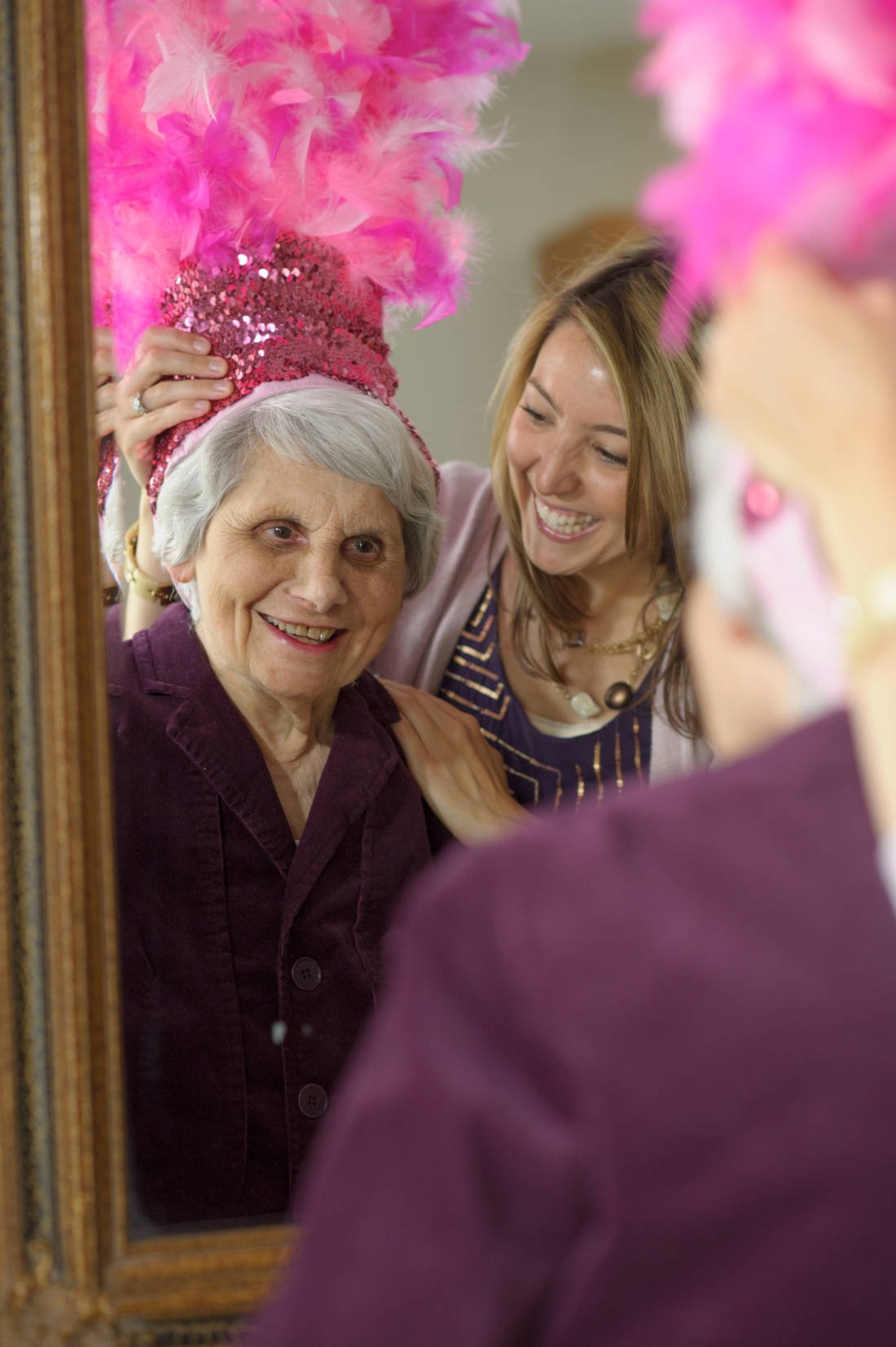Your Loved One was Diagnosed with Dementia…What Next?
 The mention of the word “dementia” can leave many people with a sinking feeling in both the stomach and heart.
The mention of the word “dementia” can leave many people with a sinking feeling in both the stomach and heart.
Unfortunately, Alzheimer's and other forms of dementia are becoming increasingly common.
In fact, more than 47 million people all over the world have dementia, and 7.7 million new cases are reported annually, according to the World Health Organization (WHO).
If your loved one has recently received a diagnosis of dementia, here’s what you need to know:
Understanding Dementia
Most people think of Alzheimer’s disease when they first hear the word “dementia.” However, dementia is, in fact, an umbrella name for the syndrome through which cognitive function and the ability to perform everyday activities undergo a deterioration. (Alzheimer’s disease falls underneath that umbrella.) A leading cause of disability and dependency among seniors, dementia impacts families across physical, mental, social and economical measures.
If your aging loved one has recently been diagnosed with dementia, it’s important to educate yourself about the disease. Dementia may begin mildly and eventually transform to include more severe symptoms, which often require constant care. Additionally, there are many underlying causes of dementia, ranging from chronic alcoholism and stroke to thyroid problems and drug interactions. Your aging loved one’s physician should discuss with you the specifics of your parent’s diagnosis, along with any other immediate information that’s relevant to his care plan.
Caring for An Aging Loved One with Dementia
Caring for an aging loved one with dementia can be difficult, but there are a few best practices that can help caregivers manage this responsibility. Most people with dementia thrive with a routine. Do your best to try to create a daily schedule of activities and stick with it. This can help prevent your loved one from becoming bored or agitated. As much as possible and for the sake of your loved one, try to follow the schedule carefully.
While your loved one may seem fine now, memory aids are an important part of managing the disease. As the disease progresses, he may have increased trouble recalling small details. Cues -- such as putting a photographed copy of plates and cups over the appropriate cabins -- are an effective way to remind seniors with dementia of important information.
Caregivers encounter many struggles while helping aging loved ones with dementia, many of them being the management of difficult behaviors. Arguing with a loved one with dementia does not usually yield good results. Rather than trying to reason with your loved, accept a more flexible approach and look for creative solutions when problems arrive. Unfortunately, if you become agitated or upset, your loved one may likely pick up on these feelings and replicate them. Stay calm, practice deep breathing, and wait for these emotions to subside before continuing to deal with the difficult behavior.
Taking Care of Yourself
Between work and family demands, it's easy for caregivers to get lost in the shuffle. Rather than ignoring your own needs and risking health complications in the long run, act now to stay well. In addition to restful and restorative activities such as running, yoga, and meditation, regular exercise is also an important part of feeling your best. Other ways to take care of yourself in order to take better care of your aging loved one include prioritizing your own social interactions, such as spending time with friends or attending a caregiver support group.
It's also important to consider what kind of caregiving role you will play. This may vary depending on your work and family obligations, and requires an honest assessment of your time, capabilities and relationship with your aging loved one. Families who need additional support may consider an assisted living or memory care community that can provide a safe and secure environment for their loved one, along with life-enriching experiences and opportunities for socializing with others.
Educate Yourself
A dementia diagnosis doesn't just change life for the patient, but also for the members of his family. While it may not be possible to fully prepare yourself for all aspects of caring for someone with this difficult disease, understanding the disease and adjusting your expectations can be a valuable coping mechanism. To learn more about Alzheimer’s and dementia, dealing with a dementia diagnosis, caring for a loved one with dementia, or managing difficult behaviors, visit the Alzheimer’s Association website at: http://www.alz.org/alzheimers_disease_1973.asp.
Key Takeaways
-
While dementia is life-changing, caregivers and family members can take immediate steps to help their aging loved ones cope with the diagnosis.
-
Understanding the disease and setting and adjusting expectations is an important part of developing coping strategies.
-
While much of the focus will be on the patient during this time, it's equally important for caregivers to attend to their own needs.
About Marissa Salvesen
My journey into the world of senior living began when I started working for United Methodist Homes in 2010. Starting as an Activities Director at one of our award-winning assisted and independent living communities and then transitioning to Marketing and Promotions Manager for UMH, I now work as the Manager of Mission Development, fostering the Mission and Values of our organization. I love sharing stories about the many ways we build meaningful relationships and enrich the lives of those we serve, and am proud to be part of building UMH’s 140-year legacy of caring. Wondering what makes our communities such special places to live and work? Connect with me and find out!

Our Blog is a 2016 Platinum Generations Award Winner! The Generations Award is an annual international competition for excellence in senior marketing recognizing professionals who have communicated to the 50+ Mature Markets.



